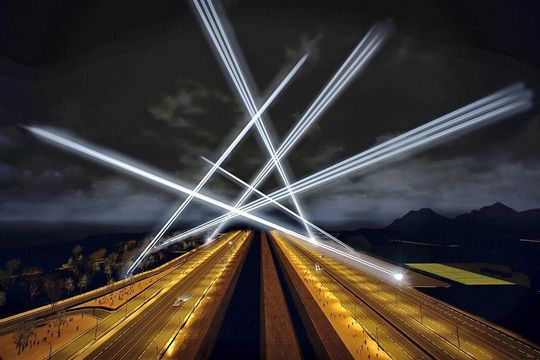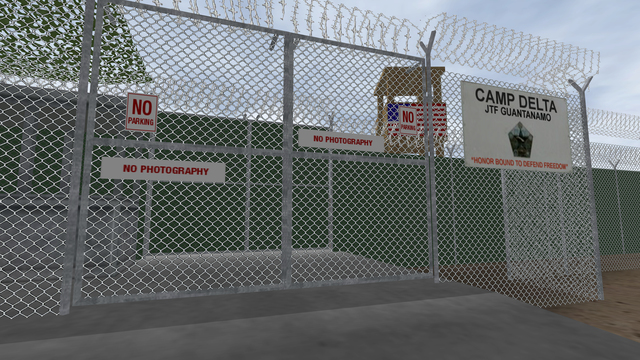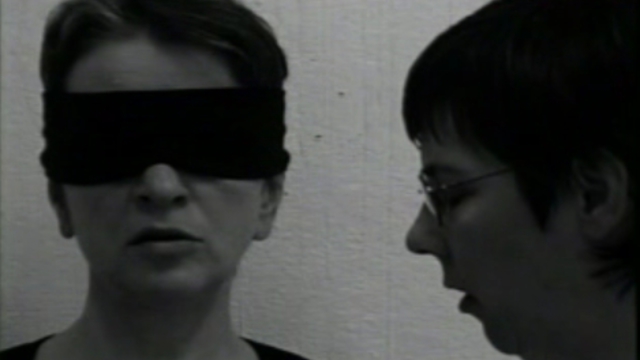Search results for 'borders'
Ten Premises For A Pandemic
How much has changed in just a few days. Here is another text I've composed in an attempt to continue to think about the pandemic, and our lives within it. I hope it's of use, however minorly, as we all try to come to some kind of terms with the novel transformations, precarities, and struggles emerging in every direction.
~i
Next 5 Minutes 1
The Next Five Minutes is a conference, exhibition and tv program taking place between 8th and 10th January 1993 in Amsterdam, that wants to leave behind the rigid dichotomy between the mainstream, commercial and national tv on one hand and marginal independent tv on the other. Although these differences may still be important, N5M wants to focus on tv-makers crossing the borders of tv-making and going into the spaces that the tv-world still has to offer.
ReadWelcoming the Iraqi Invasion Act
On the occasion of the action by refugees-on-the-street who started a camp outside the Collective Center at Ter Apel in the north of the Netherlands on the 8th of May, Jo van der Spek of M2M wrote the following column. These migrants are supposed to return voluntarily to their country, because the Dutch government believes that they are not in danger there. However the governemnt in Iraq refuses to take them back if they are forced. So they have nowhere to go to, no right to be here and no way to go there. But they act together for a chance to live and live better than before. Why not?
ReadNo One is Illegal - Principles
The No One is Illegal campaign has two goals: to attain concrete victories for immigrants and refugees and to develop the communities' own capacity to attain justice and dignity for themselves and their families. We strive and struggle for a world in which no one is forced to migrate. We also strive and struggle for a world where people can move freely in order to live and flourish in justice and dignity.
ReadLinda Herrera
Linda Herrera (PhD Columbia University, MA, American University in Cairo, BA UC Berkeley) joined the Department of Educational Policy Studies at the University of Illinois at Urbana-Champaign as Associate Professor and core staff in the Global Studies in Education MA program in January 2011. Prior to that she was a Senior Lecturer in International Development Studies (2005-2010) at the International Institute of Social Studies of Erasmus University Rotterdam where she was Convenor of the Children and Youth Studies MA specialization. Her major research interests and writing are around issues of Youth and citizenship in the Middle East and North Africa (MENA); critical ethnography of schooling; youth, employment and international development policy; democracy and education; and, more recently, youth, new media and Arab Revolution.
ReadMinor Media Normality in the East
1. Autogenerative Europe
In our imagination, eastern Europe was always black and white. Traveling to East Germany or Poland meant suddenly leaving colorful western Europe and entering a movie from the forties or fifties. Later we simply couldn't remember having seen any color, not the green of the trees, nor the red of the brick buildings. When we went to the movies to see a film by Wajda, Kieslowski or Tarkowsky, the filmmaker's experiments with color only reinforced our image of the east as gray. Europe clearly had an ideologically motivated neurosis when it came to the perception of color.
stateless plug-in
The 'stateless plug-in' is an extension for your browser that intervenes in digital territory, transforming the issue of stateless people into a multifaceted digital mapping of existing knowledge and information on the Internet.
Readmake world paper 3
Two years after 911 the global cup looks both half full and half empty. It's hard to be optimistic, yet there are plenty of reasons for it. With the Bush-Blair war machine running out of steam, the movement of movements shifts its attention to alternatives for the WTO, Security Council and similar post-democratic bodies. In the moral desert of the Iraq War the structuration of imaginary consent through the repetitive bombardment of the image began to show severe cracks in credibility. These discrepancies within the represented result in a heightened need for action. The Iraq war didn't fool any one and both sides are still reeling a little from the shock. While maintaining their anger, people moved on from protest to a collective search for that other, possible world. What might a global democracy look like? Would it be a system with representatives and 'rights,' or rather a dynamic set of events, without higher aims?
ReadBorder Tuner
The dark side of Camping
Camping can be so nice. Crawling out of dewy plastic in the early morning, with a pinch of sleep still in your eyes, braving the unbearably hot sun, yet invigorated and ready to take on the day with as much indifference as possible to the ongoing struggle with nature. Surely everybody knows that the secret of success is to fight the laws of petty bourgeois civilisation with minimal equipment and therefore gain a flexibility that is capable of suspending the otherwise ruling power relations for a clearly defined amount of time.
ReadThe Transborder Immigrant Tool: Violence, Solidarity and Hope in Post-NAFTA Circuits of Bodies Electr(on)/ic
This polyvocal, collectively authored paper describes the Transborder Immigrant Tool, a border disturbance art project developed by the Electronic Disturbance Theater. The paper outlines the motivations behind the tool and elaborates a notion of Science of the Oppressed as a methodology for developing locative media projects in solidarity with social movements. A shift is identified from Tactical Media to Tactical Biopolitics in contemporary media art. Walkingtools.net is also introduced as a platform for sharing technical information about locative media projects in order to create an ecology of projects. Poetic sustenance, part of the Transborder Immigrant Tool's functioning, is discussed in a context of Inter-American Transcendentalism.
ReadBan Facial Recognition Europe
Text campaign and research Ban Facial Recognition Europe, by Paolo Cirio. 2020
This petition introduces the campaign for the permanent ban of Facial Recognition used for identification and profiling in all of Europe. An initiative by the activist Paolo Cirio and thanks to the research and analysis of European Digital Rights (EDRi).
ArtLeaks
It is time to break the silence!
ArtLeaks is collective platform initiated by an international group of
artists, curators, art historians and intellectuals in response to the
abuse of their professional integrity and the open infraction of their
labor rights. In the art world, such abuses usually disappear, but some
events bring them into sharp focus and therefore deserve public
scrutiny. Only by drawing attention to concrete abuses can we
underscore the precarious condition of cultural workers and the
necessity for sustained protest against the appropriation of politically
engaged art, culture and theory by institutions embedded in a tight
mesh of capital and power.
Why We Protest: Freedom of Information
'Everyone has the right to freedom of opinion and expression; this
right includes freedom to hold opinions without interference and to
seek, receive and impart information and ideas through any media and
regardless of frontiers.' -Article 19, United Nations Declaration of
Universal Human Rights
Blackout-proof the protests
"Dear friends,
Across the Middle East -- in Bahrain, Libya, Yemen, and more countries
every day -- autocratic regimes are trying to crush unprecedented
peaceful protests with brutality and blackouts. These countries are
poised on the brink between liberation and enormous bloodshed -- and
the protesters' ability to reach the eyes of the world could determine
the outcomes.
Avaaz is working urgently to "blackout-proof" the protests -- with
secure satellite modems and phones, tiny video cameras, and portable
radio transmitters, plus expert support teams on the ground -- to
enable activists to broadcast live video feeds even during internet and
phone blackouts and ensure the oxygen of international attention fuels
their courageous movements for change."
Truth is concrete
A 24/7 marathon camp on artistic strategies in politics and political strategies in art. 21/09 - 28/09/2012, Graz, Austria.
Read




